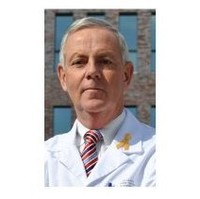Maximizing Millennial Students Role in Combating COVID-19 Hoaxes and Myths
Downloads
Introduction: Since the outbreak of Corona Disease-19 (COVID-19) spreads all over the world, various ways of health attempts have been conducted. However, overflowed information intertwines with mis/disinformation could raise public anxiety and stigma-related diseases. We aimed to assess the help of the young generation of millennials and Gen-Z whom are active college students in debunking hoaxes and myths of COVID-19 into their community.
Method: The selected students were given a short course on COVID-19 basic information, prevention, and circulated myths. Later, they become ambassadors and actively educated via offline and online platforms. The impact of outspread information on audiences was investigated through a qualitative survey.
Result: The knowledge of students were measured by pre- and post-test within the short course. Prior knowledge showed the least understanding part was prevention and myth of COVID-19. There was a significant improvement of knowledge in post-test after receiving seminar (p=0.0002). There were 97 respondents who filled the online survey that predominantly in young adulthood age. Respondent's insight was enhanced and they likely intend to spread the actual information to their surroundings.
Conclusion: Appointing student as the spokesperson for health education can raise their social responsibility. Clarifying misinformation and health behaviour could be more influential within the same sharing community. In addition, the use of various online platforms could efficiently reach massive target, especially young ages.WHO. Timeline: WHO's COVID-19 response. 2020.
WHO. Coronavirus disease 2019 (COVID-19) Situation Report – 86. 2020.
Kouzy R, Abi Jaoude J, Kraitem A, et al. Coronavirus Goes Viral: Quantifying the COVID-19 Misinformation Epidemic on Twitter. Cureus. 2020; 12: e7255.
Atehortua NA and Patino S. COVID-19, a tale of two pandemics: novel coronavirus and fake news messaging. Health Promot Int. 2020.
Chou WS, Oh A and Klein WMP. Addressing Health-Related Misinformation on Social Media. JAMA. 2018; 320: 2417-8.
UNESCO. United Nations Educational SaCO. Journalism, 'Fake News' & Disinformation. France: UNESCO, 2018.
Olivia S, Gibson J and Nasrudin Ra. Indonesia in the Time of Covid-19. Bulletin of Indonesian Economic Studies. 2020; 56: 143-74.
Djalante R, Lassa J, Setiamarga D, et al. Review and analysis of current responses to COVID-19 in Indonesia: Period of January to March 2020. Progress in Disaster Science. 2020; 6: 100091-.
Anjarie D, Fressi A and Fitri W. Exploring the Impact of COVID-19 Hoax on the Mental Health of Millennial Moms. KnE Social Sciences. 2021; 4.
Betz CL. Generations X, Y, and Z. J Pediatr Nurs. 2019; 44: A7-A8.
WHO. Social Stigma associated with COVID-19. 2020.
Van den Broucke S. Why health promotion matters to the COVID-19 pandemic, and vice versa. Health Promot Int. 2020; 35: 181-6.
Kumar S and Preetha G. Health promotion: an effective tool for global health. Indian J Community Med. 2012; 37: 5-12.
Croyle RT, Sun YC and Hart M. Processing risk factor information: defensive biases in health-related judgments and memory. In: Petrie KJ and Weinman J, (eds.). Perceptions of health and illness : current research and applications. Amsterdam :: Harwood Academic Publishers, 1997.
Bavel JJV, Baicker K, Boggio PS, et al. Using social and behavioural science to support COVID-19 pandemic response. Nature Human Behaviour. 2020; 4: 460-71.
Oosterhoff B and Palmer CA. Attitudes and Psychological Factors Associated With News Monitoring, Social Distancing, Disinfecting, and Hoarding Behaviors Among US Adolescents During the Coronavirus Disease 2019 Pandemic. JAMA pediatrics. 2020.
Wang Y, McKee M, Torbica A and Stuckler D. Systematic Literature Review on the Spread of Health-related Misinformation on Social Media. Soc Sci Med. 2019; 240: 112552.
Walter N and Tukachinsky R. A Meta-Analytic Examination of the Continued Influence of Misinformation in the Face of Correction: How Powerful Is It, Why Does It Happen, and How to Stop It? Communication Research. 2019; 47: 155-77.
Swire-Thompson B and Lazer D. Public Health and Online Misinformation: Challenges and Recommendations. Annu Rev Public Health. 2020; 41: 433-51.
1. The journal allows the author to hold the copyright of the article without restrictions.
2. The journal allows the author(s) to retain publishing rights without restrictions
3. The legal formal aspect of journal publication accessibility refers to Creative Commons Attribution Share-Alike (CC BY-SA).






























